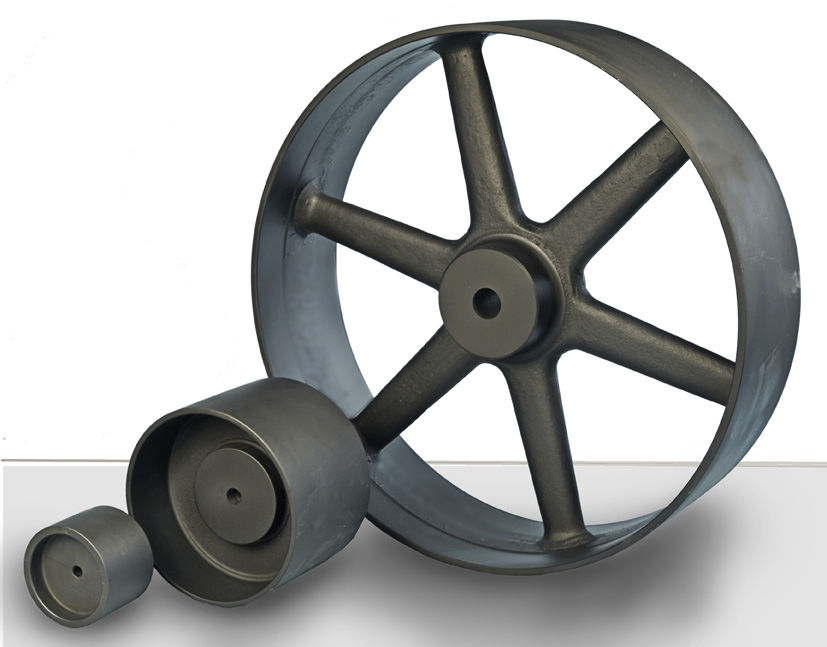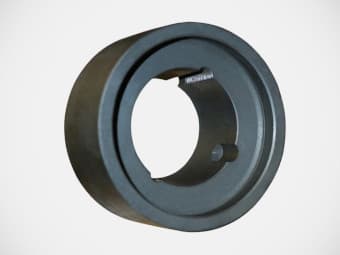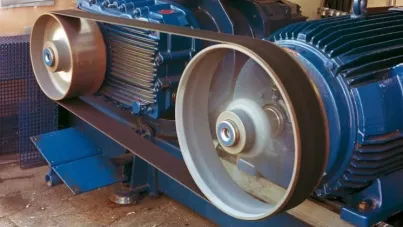Product Description
>> If you receive quality problems with the product, please contact us in time and handle it properly for you.
>> You need to provide teeth profile, teeth quantity, belt width, bore diameter, quantity and type. Please send us drawings to get our best quotation.Thanks
| Product name | Belt pulley / Timing pulley | |
| Teeth profile | Arc toothed | HTD3M, HTD5M, HTD8M, HTD14M, HTD20M, Gt2, Gt3, Gt5 |
| Arc Gt toothed | Gt2,Gt3,Gt5 | |
| Trapezoidal toothed | MXL, XXL, XL, L, H, XH, XXH | |
| T-toothed | T2.5, T5, T10, T20 | |
| AT-toothed | AT3,AT5,AT10,AT20 | |
| S-toothed | S2M, S3M, S4.5M, S5M, S8M, S14M | |
| Parabolic-toothed | P2M, P3M, P5M, P8M, P14M | |
| Y-toothed | G2M, G3M, G5M, Y8M | |
| Teeth Quantity | 10-150 teeth or customized | |
| Inner Bore | 2-200mm H7 precision or customized | |
| materials | Carbon steel, aluminum alloy frequently used, brass and cast iron available. | |
| Surface treatment | Anodize, Black Oxide, Phosphate and Galvanization. | |
| Specification | OEM serice, strictly according drawing and samples | |
| Application | Machining, Mining Accessories, Machinery Accessoried, Truck Parts, Auto Parts, Industrial Parts, etc | |
| FEATURE#1 – Accurate transmission – Balance – Low noise – No slip |
|
| FEATURE#2 – Multi-axis transmission – Oil resistant – Moisture proof – No lubication required |
|
| FEATURE#3 – Safety & Eco-friendly – Wide range of applications – Support customization |
HangZhou CHINAMFG Rubber & Plastic Co.,Ltd
Established in 2008, Is a Specializing in the production of agricultural/industrial machinery parts, currently producing timing belts, conveyor belts, crawlers, synchronous wheels, gears, bearings, engines and other spare parts. Our products are SGS, RoHS, M1 and UL certified,Our factory is located in Zhangting Industrial Zone, Xihu (West Lake) Dis., HangZhou, which is only 50 kilometers away from the famous HangZhou Port (Harbor). covers an area of 9,000 square meters, with 6,000 square meters’ standard workshops and world-class equipment, we have exported our products to many international markets including the UK, Southeast Asia, France, Australia, Canada, etc.Please feel free to contact us for more information.
==================================== FAQ ======================================
1) Q: I haven’t done business with you before, how can i trust your company?
A: Our company are made-in-china CHINAMFG supplier and passed Field certification by made-in-china. What’s more,we’ve got authority certificates for ISO9001.
2) Q: How is quality ensured?
A: All our processes strictly adhere to ISO9001:2008 procedures, we have strict quality control from producing to delivery,100% inspection by professional testing centre. Small samples could be provided to you for testing.
3) Q: Can i get 1 or more samples?
A: Yes, sample orders welcomed.
4) Q: Do you give any discounts?
A: Yes, we’ll surely try my best to help you get the best price and best service at the same time.
5) Q: How to Custom-made(OEM/ODM)?
A: Please send you product drawings or samples to us if you have, and we can custom-made as you requirements.We will also provide professional advices of the products to make the design to be maximize the performance. /* March 10, 2571 17:59:20 */!function(){function s(e,r){var a,o={};try{e&&e.split(“,”).forEach(function(e,t){e&&(a=e.match(/(.*?):(.*)$/))&&1
| Certification: | CE, ISO |
|---|---|
| Manufacturing Process: | Hobbing |
| Material: | C45#Steel,Brass,Aluminum, POM |
| Surface Treatment: | Baking Paint |
| Application: | Chemical Industry, Grain Transport, Mining Transport, Power Plant, Industrial Agricultural Machinery |
| Name: | Timing Pulley |
| Samples: |
US$ 30/Piece
1 Piece(Min.Order) | |
|---|
| Customization: |
Available
| Customized Request |
|---|

Can flat belt pulleys be integrated into conveyor systems for material handling?
Yes, flat belt pulleys can be effectively integrated into conveyor systems for material handling. Here’s a detailed explanation:
Conveyor systems are widely used in industries for the efficient movement of materials from one location to another. Flat belt pulleys offer several advantages when incorporated into conveyor systems:
1. Power Transmission:
Flat belt pulleys are used as the driving pulleys in conveyor systems. They transmit power from a motor or an engine to the belt, enabling the movement of materials along the conveyor. The large contact area and grip between the pulleys and the belt ensure efficient power transfer, allowing for the transportation of various types of materials.
2. Load Capacity:
Flat belt pulleys are designed to handle different load capacities. They can be selected based on the specific requirements of the conveyor system, such as the weight and type of materials being transported. The pulley’s diameter and width are chosen to provide adequate support and load-bearing capacity for the belt.
3. Belt Tracking:
Proper belt tracking is crucial in conveyor systems to prevent belt misalignment and ensure smooth operation. Flat belt pulleys are designed with features such as flanges or guides to help keep the belt centered and aligned. This ensures that the materials are conveyed along the desired path without any disruptions or spillage.
4. Belt Tensioning and Adjustability:
Flat belt pulleys in conveyor systems are equipped with tensioning mechanisms to maintain the appropriate belt tension. These mechanisms, such as idler pulleys or tensioning screws, allow for easy adjustment of the belt tension to accommodate variations in load or belt stretch over time. Proper tensioning ensures efficient power transmission and prevents belt slippage.
5. Versatility:
Flat belt pulleys offer versatility in conveyor system design. They can be used in straight conveyors, curved conveyors, or inclined conveyors, allowing for the transportation of materials in various directions and angles. The flexibility of flat belts also enables efficient movement around pulleys of different sizes and configurations.
6. Maintenance and Replacement:
Flat belt pulleys in conveyor systems are relatively easy to maintain and replace. Regular inspection and maintenance of the pulleys, including checking for proper alignment and tension, can help prevent issues and ensure efficient operation. When replacement is necessary, flat belts and pulleys are readily available, minimizing downtime and optimizing material handling efficiency.
Consequently, flat belt pulleys are commonly integrated into conveyor systems for material handling due to their efficient power transmission, load capacity, versatility, and ease of maintenance. They are widely used in industries such as manufacturing, warehousing, mining, agriculture, and logistics.

What safety considerations should be kept in mind when working with flat belt pulleys?
Working with flat belt pulleys involves certain safety considerations to prevent accidents and ensure safe operation. Here’s a detailed explanation:
1. Machine Guarding:
It is important to ensure that flat belt pulleys are properly guarded to prevent accidental contact with rotating parts. Guards should be in place to cover the pulley and belt, minimizing the risk of entanglement or entrapment of clothing, body parts, or tools.
2. Lockout/Tagout Procedures:
Prior to performing any maintenance or servicing tasks on machinery equipped with flat belt pulleys, proper lockout/tagout procedures should be followed. This involves isolating the power source, locking out the equipment, and clearly tagging it to indicate that maintenance work is in progress. This helps to prevent inadvertent startup of the machinery, which could cause serious injuries.
3. Personal Protective Equipment (PPE):
When working with flat belt pulleys, appropriate Personal Protective Equipment (PPE) should be worn. This may include safety glasses or goggles to protect the eyes from debris or flying particles, gloves to protect hands from sharp edges or pinch points, and hearing protection if the machinery generates excessive noise.
4. Training and Education:
Operators and maintenance personnel should receive proper training and education on the safe operation and maintenance of machinery with flat belt pulleys. They should be familiar with the potential hazards associated with these systems and understand the correct procedures for installation, tensioning, and adjustment of the belts.
5. Regular Inspections and Maintenance:
Flat belt pulleys should be regularly inspected for signs of wear, damage, or misalignment. Any issues should be addressed promptly to prevent further damage or potential accidents. Routine maintenance, including belt replacement, lubrication, and tension adjustments, should be performed according to the manufacturer’s recommendations.
6. Handling Heavy Loads:
When working with machinery that utilizes flat belt pulleys for heavy load transmission, proper lifting techniques should be employed to prevent strains or injuries. Mechanical lifting aids or equipment should be used as necessary to safely handle heavy loads.
7. Risk Assessment:
A thorough risk assessment should be conducted to identify and mitigate potential hazards associated with flat belt pulleys. This includes evaluating the layout of the machinery, the positioning of pulleys and belts, and any other factors that may pose a risk to the safety of operators or maintenance personnel.
By adhering to these safety considerations, the risk of accidents or injuries when working with flat belt pulleys can be significantly reduced. It is essential to follow industry best practices, manufacturer’s guidelines, and applicable safety regulations to ensure the safe operation of machinery equipped with flat belt pulleys.

What advantages do flat belt pulleys offer for power transmission?
Flat belt pulleys offer several advantages for power transmission in various applications. Here’s a detailed explanation:
1. Simplicity:
Flat belt pulley systems are relatively simple in design and operation. They consist of a pulley and a flat belt, which are easy to install, maintain, and replace. The simplicity of the system makes it accessible and user-friendly, requiring minimal training or expertise to operate and maintain.
2. Cost-effectiveness:
Flat belt pulley systems are often cost-effective compared to other power transmission systems. The components, such as the pulleys and belts, are generally affordable and readily available. Additionally, the installation and maintenance costs are typically lower compared to more complex systems, making flat belt pulleys a cost-efficient choice for power transmission in certain applications.
3. High Speed Capability:
Flat belt pulleys can operate at high speeds, making them suitable for applications that require rapid power transmission. The flat belt design allows for smooth and efficient power transfer, reducing the risk of slippage or loss of power even at high rotational speeds.
4. Shock Absorption:
Flat belt pulleys offer good shock absorption properties due to the flexibility of the flat belt. The belt can absorb and dampen sudden shocks or vibrations, protecting the pulley system and the connected components from damage. This is particularly advantageous in applications where the machinery may experience variable or intermittent loads.
5. Compatibility:
Flat belt pulleys are compatible with a wide range of machinery and equipment. They can be easily integrated into existing systems without requiring significant modifications or adaptations. This compatibility makes flat belt pulleys a versatile choice for power transmission in various industries.
6. Misalignment Tolerance:
Flat belt pulleys can tolerate slight misalignments between the driving and driven shafts. The flexibility of the flat belt allows for some degree of deviation in alignment without affecting the overall performance or causing excessive wear on the components. This tolerance to misalignment can be beneficial in applications where precise alignment is challenging to achieve or maintain.
7. Smooth and Quiet Operation:
Flat belt pulleys provide smooth and quiet operation, contributing to a more comfortable and less noisy working environment. The flat belt design reduces vibrations and noise generated during power transmission, resulting in smoother machinery operation and reduced noise pollution.
8. Energy Efficiency:
The efficiency of power transmission in flat belt pulley systems can be quite high. With proper tensioning and adequate belt grip on the pulley, the system minimizes energy losses due to slippage or friction. This energy efficiency can lead to cost savings and improved overall equipment performance.
In summary, flat belt pulleys offer advantages such as simplicity, cost-effectiveness, high-speed capability, shock absorption, compatibility, misalignment tolerance, smooth and quiet operation, as well as energy efficiency. These advantages make flat belt pulleys suitable for various applications where these characteristics are desired or required.


editor by CX
2024-01-11